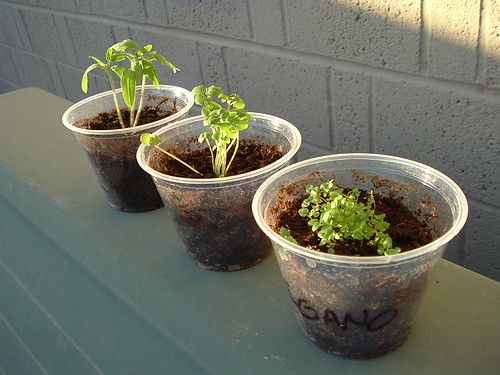This time of year people across the northern hemisphere are preparing for a popular hobby. Whether it is flowers or food, people are thinking about, planning for, and actually planting their gardens. Some of these gardens are meant simply to provide beauty, others to put healthy and needed food on the table – most all are done as a labor of love by the gardener.

While the purposes may be different, the steps gardeners take to prepare the soil, plant, and care for their gardens are very similar and actually very instructive for us as leaders. Below are five major connections between a master gardener who is growing plants and a remarkable leader who is growing people.
Prepare the soil with belief. Gardeners must till their soil to create a seedbed conducive for seeds and young plants to get an early start. They know that the preparation of the soil plays a part not only in the initial development of the plant but the nurturing and development of the plant throughout its life. The best leaders know that they must plant their people in an environment conducive to their growth too. The most important first step for leaders in growing others is to place them in the soil of belief. When we believe in those we are leading and coaching we are giving them the best chance at the start, and we are setting them up for long term success.
Plant seeds with encouragement. Gardeners plant with a positive expectation. They don't plant expecting a poor harvest – they plant expecting a bumper crop! As leaders we must plant our people expecting them to succeed. This certainly relates to believing in them but goes beyond that too. We must plant people providing them with the encouragement that they can succeed – letting them see the bumper crop that we see for them.
Provide the nourishment of learning. Gardeners know their work isn't done after planting. To give their plants the best chance of success they provide an ongoing stream of nourishment in the form of fertilizer and water – knowing that without these inputs growth will always be stunted. As leaders we much nourish those we lead with learning opportunities. Whether those opportunities are books, courses or any of a hundred other learning opportunities, we can provide those opportunities and suggest to those we lead that in order to grow to their maximum potential they must continue to learn.
Provide the care of feedback. Gardeners often prune or adjust the growth of their plants. As leaders and coaches we must provide feedback – the mid-course correction and advice that helps people continuing to move in the proper direction.
Pick the harvest of great performance and goal achievement. The best gardeners enjoy the whole growing season, and remember that the ultimate goal is a bountiful harvest. They know that their efforts throughout the year help create the harvest they planned for. As leaders our harvest is the personal and professional growth of those we lead – and the enhanced performance that comes with it. We take all of the time and effort to create this harvest. And like the best gardeners, great leaders enjoy the coaching process – it isn't just a means to an end – however valuable or needed the end might be.
Beyond the importance of the garden itself and its harvest of beans or blossoms, gardeners take great pride in their efforts. Many express the satisfaction that comes from the tangible results of their efforts. As they work with their plants, they can see those plants grow, develop and mature. So too for leaders. In our role as coaches we can derive great satisfaction and joy from seeing our people grow and mature.
There is another fact about gardeners that can't be overlooked. While gardeners put much time, effort and love into caring for their plants, in the end they know that the final results aren't completely in their control. Gardeners do their work hopefully and consistently and put the balance into the hands of nature. So too, the best leaders work to support and help those they are leading and coaching, and in the end their efforts will still be ultimately be determined by the performer themselves.
As you work in your garden or as you watch gardens around you grow this summer, think about the connections and the lessons you can learn as a leader. Recognize that as a leader you are in the growing business: you are growing people towards their potential.
Thanks to Kevin Eikenberry / Blogs KevinEikenBerry
No comments:
Post a Comment